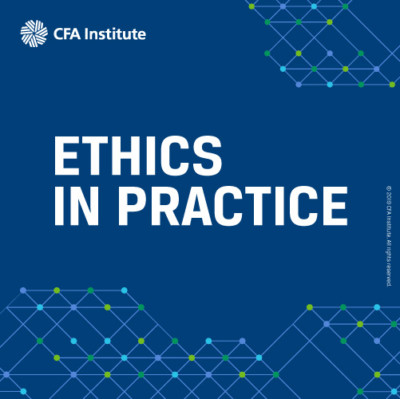Ethics in Practice: Joint Venture Investments. Case and Analysis–Week of 7 October
Check the analysis of this week’s case (7 October) to see if you made the right choice.
Case
Henderson is an investment adviser and a leader in his church who regularly travels on mission trips to a developing country. During these visits, he befriends a bishop of the local church. The local church leader convinces Henderson to form a joint venture for the purpose of allowing individuals in the United States to invest in local securities that fund infrastructure development projects in the country. The local church leader assures Henderson that the securities have the backing of the local government. Henderson agrees to form the joint venture with the local church leader and offers his clients the opportunity to invest in local securities through purchases of shares in the joint venture. His solicitation targets his clients, members of religious organizations with which Henderson is associated, and alumni of the religious university that Henderson attended. Henderson states that he had “been led by the Spirit” to form this joint venture and claims that the investment opportunity will “stir up the apostles, leaders, and evangelists to lead the way in the church and in the world.” He refers to his local partner in the joint venture as a “believer” and an “apostle/tentmaker in his country.” He states that the projects funded by the “government-backed” securities purchased by the joint venture will “help bring the Word to nonbelievers.” Henderson’s actions are
- unethical because he appeals to the religious beliefs of individuals to solicit investments.
- ethical as long as the investments are suitable for his clients.
- unethical because his claims about the securities are misleading.
- ethical if he diligently investigates the investment opportunity and has a reasonable basis for the recommendation.
- none of the above.
Analysis
This case is related to misrepresentation. CFA Institute Standard of Professional Conduct I(C) prohibits CFA Institute members from making any misrepresentations relating to investments. Although the underlying securities purchased by the joint venture may be guaranteed by the local government, clients are buying shares of the joint venture, which are not “government-backed” investments. Also, the claim that the securities are “government backed” does not specify the government involved, potentially implying that it is the US government (which is very likely more creditworthy than the local government). It is not necessarily unethical to market investments as having subjective and tangential religious benefits to potential investors that have a particular interest in achieving those goals. For instance, promoting and selling socially responsible investments to those seeking to invest in assets that advance social or environmental goals is a valid and established investment practice. In this case, although Henderson has diligently investigated the investments and the securities themselves may be suitable for clients, these facts would not remedy or supersede the misrepresentations about the shares of the joint venture being “government backed” that mislead investors about the characteristics or merits of the investment. Choice C is the best response.
This case is based on a US SEC enforcement action from September 2019.
Let us know what you think of Ethics in Practice by taking this short survey.
Have an idea for a case for us to feature? Send it to us at [email protected].
More About the Ethics in Practice Series
Just as you need to practice to become proficient at playing a musical instrument, public speaking, or playing a sport, practicing assessing and analyzing situations and making ethical decisions develops your ethical decision-making skills. The Ethics in Practice series gives you an opportunity to “exercise” your ethical decision-making skills. Each week, we post a short vignette, drawn from real-world circumstances, regulatory cases, and CFA Institute Professional Conduct investigations, along with possible responses/actions. We then encourage you to assess the case using the CFA Institute Ethical Decision-Making Framework and through the lens of the CFA Institute Code of Ethics and Standards of Professional Conduct.
Image Credit: ©CFA Institute


Henderson’s actions are unethical because by using religious beliefs he his misguiding the investors. This is a conflict of interest between his both work areas.
B
unethical because he appeals to the religious beliefs of individuals to solicit investments.
C – Unethical (misleading). There is no evidence other than the bishop’s word to suggest the securities are backed by the government, moreover the use of proceeds are further misrepresented based on the statements made in the solicitation.
B,misleading
nonono,it’s C,misleading